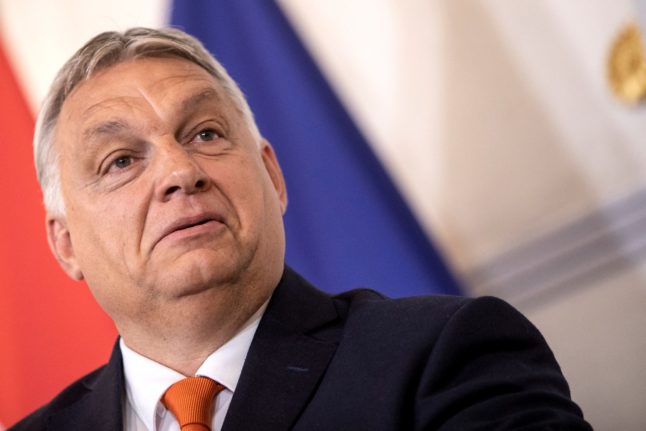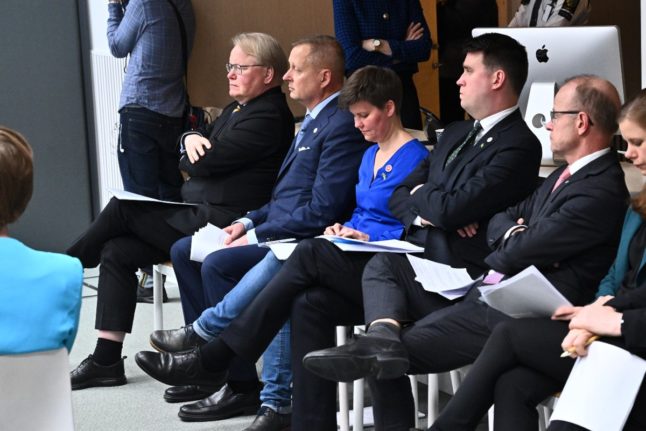“The good news is that our current dispute with Sweden is moving towards a conclusion,” Orban said in his state-of-the-nation address.
“Together with the Swedish PM, we have taken important steps in order to rebuild trust,” he said, without giving further details.
“We are on course to ratify Sweden’s accession to NATO at the beginning of parliament’s spring session,” he added.
Parliament is scheduled to reconvene on February 26.
On Wednesday, Swedish Foreign Minister Tobias Billstrom said his country hoped that Hungary will soon ratify its accession to NATO, removing the last obstacle to its membership.
READ ALSO: Inside Sweden: When exactly will Sweden join Nato?
Billstrom reiterated there would be no negotiations on the ratification despite Orban inviting his Swedish counterpart Ulf Kristersson to “negotiate” Sweden’s accession.
“There is nothing to negotiate, if there is a visit, it’s not going to be a negotiation, that has been made very clear by my prime minister,” the Swedish minister said earlier this week.
Although it supports Stockholm in principle, Budapest prolonged the process by asking Sweden to stop “vilifying” the Hungarian government, which is accused of taking an authoritarian turn.
After Russia’s invasion of Ukraine, Sweden announced its application to join NATO in May 2022, at the same time as Finland.
Finland became the organisation’s 31st member in April 2023 after all NATO members ratified its bid.



 Please whitelist us to continue reading.
Please whitelist us to continue reading.
Member comments